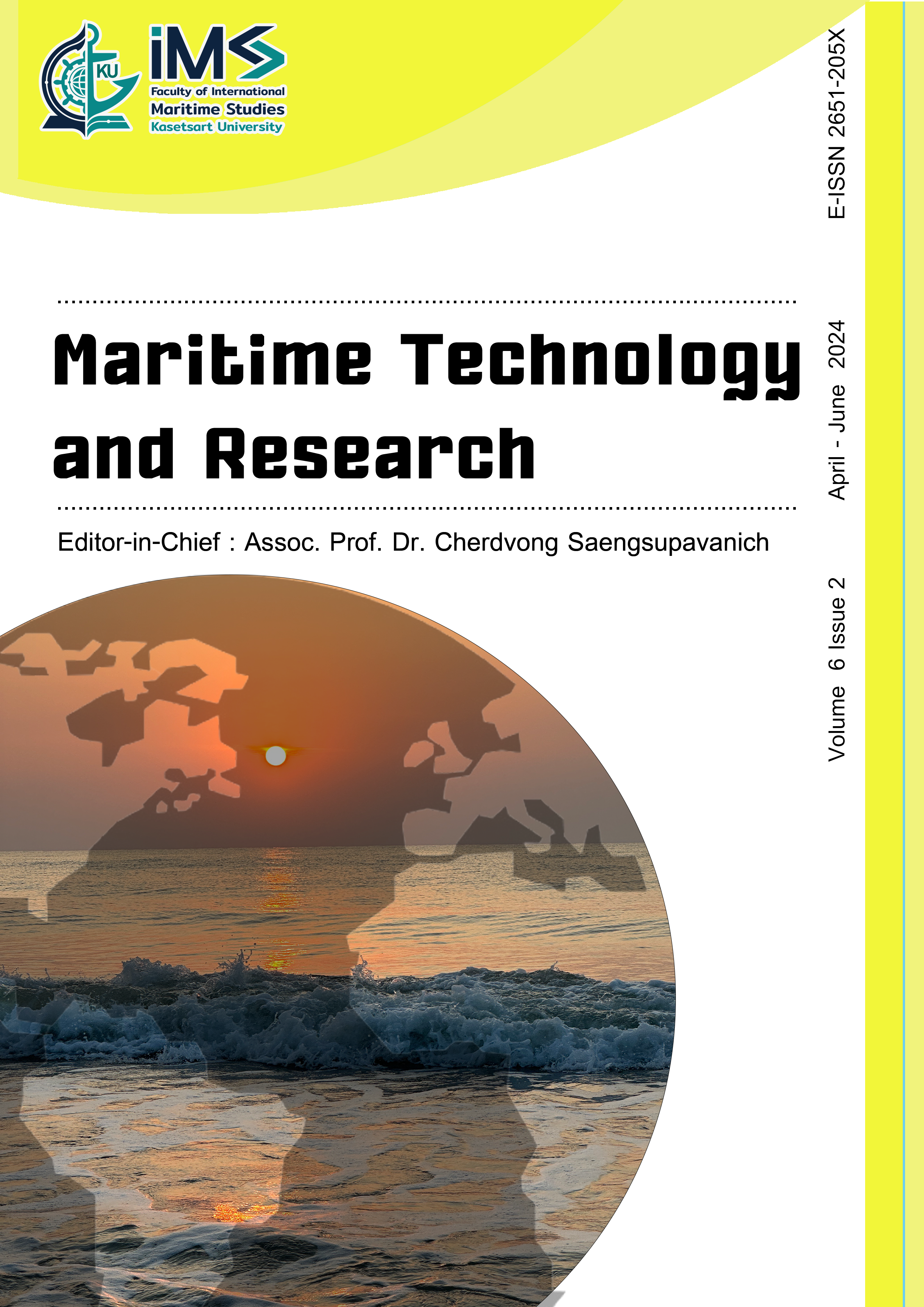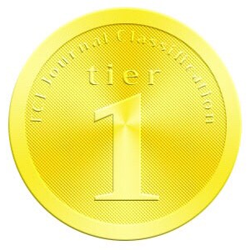Perception of marine fisheries resources in Tanzania from past to present: Evidence through local knowledge
DOI:
https://doi.org/10.33175/mtr.2024.267008Keywords:
Fishers’ perception, Indian Ocean, Fishing practices, TanzaniaAbstract
How communities interact with natural resources is a critical topic of discussion around the world. In this study, we approach the phenomenon from the fishers’ perspective. This study aims to explore the perception and knowledge of local fishers regarding fishing practices. With the help of interviews and focus group discussions with residents of three fishing communities located along the Indian Ocean coast in Tanzania, the research discovered that these local fishers are not just engaged in catching fish; they also possess a valuable understanding of the ocean and fishing practices. The study concludes that incorporating the perception and knowledge of these local fishermen into future fisheries management initiatives could be highly beneficial.
------------------------------------------------------------------------------
APA Style:
Bulengela, G. (2024). Perception of marine fisheries resources in Tanzania from past to present: Evidence through local knowledge. Maritime Technology and Research, 6(2), 267008. https://doi.org/10.33175/mtr.2024.267008
MDPI Style:
Bulengela, G. Perception of marine fisheries resources in Tanzania from past to present: Evidence through local knowledge. Marit. Technol. Res. 2024, 6(2), 267008. https://doi.org/10.33175/mtr.2024.267008
Vancouver Style:
Bulengela G. (2024). Perception of marine fisheries resources in Tanzania from past to present: Evidence through local knowledge. Marit. Technol. Res. 6(2): 267008. https://doi.org/10.33175/mtr.2024.267008
------------------------------------------------------------------------------
Highlights
- Fishers do not merely fish; they possess rich and valuable knowledge regarding marine resources
- The knowledge is vital for improved fisheries management
- Fisheries managers need to consider fishers as knowers, not merely exploiters of fisheries resources
- Integration of local knowledge and scientific knowledge in fisheries management would yield better fruits
References
Adrianto, L., Nawawi, A., Solihin, A., & Hartoto, D. (2011). Local constructions of fisheries management in Indonesia. Bogor: Center for Coastal and Marine Resources Studies.
Anticamara, J. A., Watson, R., Gelchu, A., & Pauly, D. (2011). Global fishing effort (1950 - 2010): Trends, gaps, and implications. Fisheries Research, 107(1-3), 131-136. https://doi.org/10.1016/j.fishres.2010.10.016
Awuah-Nyamekye, S. (2009). Salvaging nature: The Akan Religio-Cultural Perspective. Worldviews, 13, 251-282. https://doi.org/10.1163/136352409X12535203555713
Bassett, T. J., & Peimer, A. W. (2015). Political ecological perspectives on socioecological relations. Natures Sciences Sociétés, 165(23), 157-165. https://doi.org/10.1051/nss/2015029
Bassett, T. J., & Zimmerer, K. S. (2003). Cultural ecology. In Gaile, C. J., & Wilmott, G. L. (Eds.). Geography in America at the dawn of the new millennium. Oxford: Oxford University Press. https://doi.org/10.1093/oso/9780198233923.003.0018
Berg, B. L. (2001). Qualitative research methods for the social sciences (4th eds.). Needham Heights: Allyn & Bacon.
Berkes, F., Colding, J., & Folke, C. (2000). Rediscovery of traditional ecological knowledge as adaptive management. Ecological Applications, 10(5), 1251-1262. https://doi.org/10.1890/1051-0761(2000)010[1251:ROTEKA]2.0.CO;2
Berkström, C., Myron, P., Narriman, S. J., Lina, M. N., & Beatrice, I. C. (2019). Fishers’ Local Ecological Knowledge (LEK) on connectivity and seascape management. Fronters in Marine Science, 6(3), 1-10. https://doi.org/10.3389/fmars.2019.00130
Braulik, G., Kasuga, M., & Majubwa, G. (2020). Local ecological knowledge demonstrates shifting baselines and the large-scale decline of sawfishes (Pristidae) in Tanzania. African Journal of Marine Science, 42(1), 67-79. https://doi.org/10.2989/1814232X.2020.1728379
Bulengela, G., Onyango, P., Brehm, J., Staerhr, P., & Sweke, E. (2020). Bring fishermen at the center: The value of local knowledge for understanding fisheries resources and climate-related changes in Lake Tanganyika. Environment, Development and Sustainability, 22, 5621-5649. https://doi.org/10.1007/s10668-019-00443-z
Carmack, E., & Macdonald, R. (2008). Water and ice-related phenomena in the coastal region of the Beaufort Sea: Some parallels between native experience and western science. Arctic, 61(3), 265-280. https://doi.org/10.14430/arctic24
Charnley, S., Fischer, A. P., & Jones, E. T. (2007). Integrating traditional and local ecological knowledge into forest biodiversity conservation in the Pacific Northwest. Forest Ecology and Management, 246(1), 14-28. https://doi.org/10.1016/j.foreco.2007.03.047
Cinner, J., & McClanahan, T. R. (2006). Socioeconomic factors that lead to overfishing in small-scale coral reef fisheries of Papua New Guinea. Environmental Conservation, 33(1), 73-80. https://doi.org/10.1017/S0376892906002748
CRC. (2006). Community-based fisheries management plan, July 2005 - July 2006. Rhode Island.
de la Torre-Castro, M. (2006). Beyond regulations in fisheries management: The dilemmas of the “Beach Recorders” Bwana Dikos in Zanzibar, Tanzania. Ecology and Society, 11(2), 35. https://doi.org/10.5751/ES-01876-110235
Dickens, P. (2004). Society and nature: Changing our environment changing ourselves. Cambridge: Polity Press.
Erriksonn, H. B,. de la Torre-Castro, M., & Jiddawi, J. (2010). Resource depletion of the sea cucumber fishing in Zanzibar, Tanzania, a need for management reform. Aquatic Living Resource, 23, 382-398. https://doi.org/10.1051/alr/2011002
Evans, D., & Jackson, T. (2001). Sustainable consumption: Perspectives from social and cultural theory. Resolve Working Paper Series, University of Surrey, Guildford.
Eythorsson, E. (1993). Sami Fjord Fishermen and the State: Traditional knowledge and resource management in Northern Norway (pp. 133-142). In Inglis, I. (Ed.). Traditional Ecological Knowledge, Ottawa: International Programme on Traditional Ecological Knowledge Research Center, Canada Museum of Nature.
FAO. (2014). The state of world fisheries and aquaculture 2014: Opportunities and challenges. Rome: FAO. Retrieved from https://scholar.google.com/scholar?hl=en&as_sdt=0%2C5&q=FAO.+2014.+The+State+of+World+Fisheries+and+Aquaculture+2014%3A+Opportunities+and+Challenges.+Rome%3A+FAO.&btnG=
FAO. (2020). World fisheries and aquaculture. Rome: FAO. Retrieved from https://doi.org/10.4060/ca9229en
Folke, C. (2009). Traditional knowledge in social: Ecological systems. Ecology and Society, 9(3), 7. https://doi.org/10.5751/ES-01237-090307
Forsyth, T. (2003). Critical political ecology: The politics of environmental science. London and New York: Routledge. https://doi.org/10.4324/9780203017562
Gadgil, M., Berkes, F., & Folke, C. (1993). Indegenous knowledge for biodisersity conservation. Ambio, 22(2-3), 151-156.
Goldman, M., Turner, T. D., & Daly, M. (2018). A critical political ecology of human dimensions of climate change: Epistemology, ontology, and ethics. WIREs Climate Change, 9(4), e526. http://dx.doi.org/10.1002/wcc.526
Johannes, R. E., Freeman, M. M, & Hamilton, R. J. (2000). Ignore fishers’ knowledge and miss the boat. Fish and Fisheries, 1(3), 257-272. http://dx.doi.org/10.1111/j.1467-2979.2000.00019.x
Johnson, C. A. (2004). Uncommon ground: The “Poverty of History” in common property discourse. Development and Change, 35(3), 407-433. http://dx.doi.org/10.1111/j.1467-7660.2004.00359.x
Kamat, V. R. (2014). The ocean is our farm: Marine conservation, food insecurity, and social suffering in Southeastern Tanzania. Human Organization, 73(3), 289-298. https://doi.org/10.17730/humo.73.3.f43k115544761g0v
Katikiro, R., Deepananda, K. H. M. A., & Macusi, E. (2015). Interplay between perceived changes in fishery and social structures in Tanzanian Coastal Fishing Communities. Fisheries Research, 164, 249-253. http://dx.doi.org/10.1016/j.fishres.2014.12.009
Leite, M. C. F., & Gasalla, M. A. (2013). A method for assessing FEK/LEK as a practical tool for ecosystem-based fisheries management: Seeking consensus in Southeastern Brazil. Fisheries Research, 145, 43-53. http://dx.doi.org/10.1016/J.FISHRES.2013.02.013
Li, Y., Cheng, H., Beeton, R. J., Sigler, T., & Halog, A. (2016). Sustainability from a Chinese cultural perspective: The implications of harmonious development in environmental management. Environment, Development and Sustainability, 18, 679-696. https://doi.org/10.1007/s10668-015-9671-9
Mendenhall, E., Cullen, H., Nyman, E., Paige, R., & Hoopes, J. R. (2020). Climate change increases the risk of fisheries conflict. Marine Affairs, 117, 103954. https://doi.org/10.1016/j.marpol.2020.103954
Moshy, V. H., & Ian, B. (2016). Seeing through fishers’ Lenses: Exploring marine ecological changes within Mafia Island Marine Park, Tanzania. SAGE Open, 6(2), 1-18. https://doi.org/10.1177/2158244016641716
Pauly, D., Christensen, V., Guenette, S., Pitcher, T.J., Sumaila, R., Waters, C., Watson, R., & Zeller, D. (2002). Towards sustainability in world fisheries. Nature, 418(8), 689-695. https://doi.org/10.1038/nature01017
Peet, R., & Watts, M. (1996). Liberation ecologies. London: Routledge. http://dx.doi.org/10.4324/9780203286784
Petit, P., & Shipton, T. (2012). IUU fishing on lake Tanganyika. India Ocean Region, European Union.
Posey, D. A. (1999). Cultural and spiritual values of biodiversity. London: Intermediate Technology Pubications. https://doi.org/10.3362/9781780445434
Santha, S. D. (2008). Local ecological knowledge and fisheries management: A study among riverine fishing communities in Kerala, India. Local Environment, 13, 423-435. https://doi.org/10.1080/13549830701809726
Schama, S. (1996). Landscape and mamory. London: Fontana Press.
Silas, M. O., & Gullstrom, M. (2020). Adaptive capacity and coping strategies of small-scale coastal fisheries to declining fish catches: Insights from Tanzanian Communities. Environmental Science and Policy, 108, 67-76. https://doi.org/10.1016/j.envsci.2020.03.012
Stobutzki, I. C., Silvestre, G. T., Talib, A. A., Krongprom, A., Supongpan, M., Khemakorn, P., Armada, N., & Garces, L. R. (2006). Decline of demersal coastal fisheries resources in three developing asian countries. Fisheries Research, 78, 130-142. https://doi.org/10.1016/j.fishres.2006.02.004
Sumeldan, J. D. C., Isabell, R., Arlene L. A., Hernando P. B., Lota A. C., Sabine, P., & Jennifer L. B. (2021). Ask the locals: A community-informed analysis of perceived marine environment quality over time in Palawan, Philippines. Frontiers in Psychology, 12(8), 661810. https://doi.org/10.3389/fpsyg.2021.661810
Thomas, V. P. (2017). The missing middle: Central Arctic Ocean gaps in fishery research and science coordination. Marine Policy, 85, 79-86. https://doi.org/10.1016/j.marpol.2017.08.008
Thornton, T. F., & Scheer, A. M. (2012). Collaborative engagement of local and traditional knowledge and science in marine environments: A review. Ecology and Society, 17(3), 8. https://doi.org/10.5751/ES-04714-170308
Watson, A., Alessa, L., & Glaspell, B. (2003). The relationship between traditional ecological knowledge, evolving cultures, and wilderness protection in the Circumpolar North. Conservation Ecology, 8(1), 2. https://doi.org/10.5751/ES-00589-080102
Downloads
Published
Issue
Section
Categories
License
Copyright (c) 2023 Maritime Technology and Research

This work is licensed under a Creative Commons Attribution-NonCommercial-NoDerivatives 4.0 International License.
Copyright: CC BY-NC-ND 4.0








